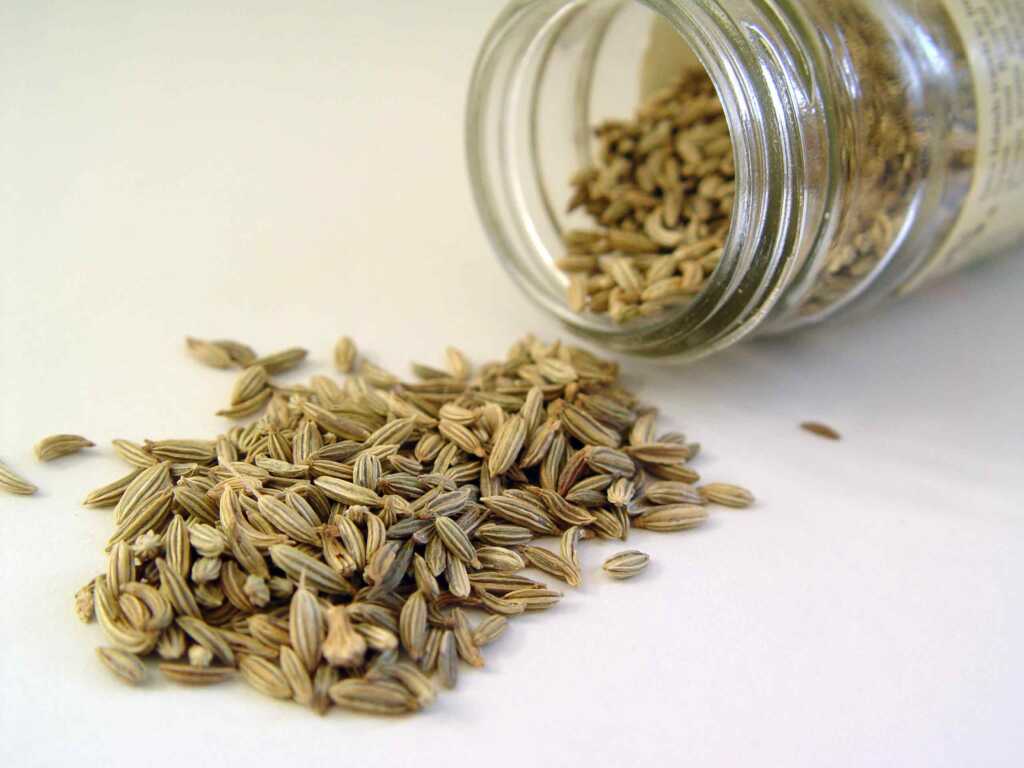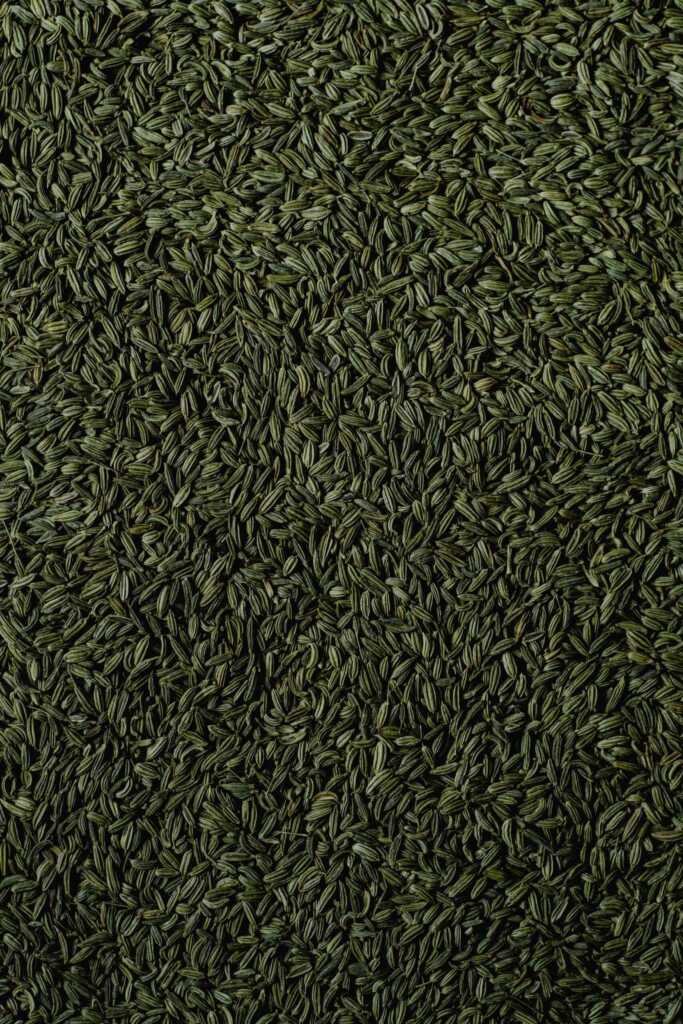
Fennel seeds, commonly known as “saunf” in Kashmiri, play a crucial role in the vibrant and diverse culinary landscape of Kashmir. This aromatic spice has been an integral part of Kashmiri cooking for centuries, infusing dishes with its distinctive flavor and numerous health benefits. In this article, we will explore the significance of fennel seeds in Kashmiri cuisine, their versatile uses, and how they contribute to the unique taste of traditional dishes. Let’s delve into the fascinating world of fennel seeds and discover why they are a beloved spice in the Kashmiri kitchen.
What are fennel seeds called in Kashmiri?
| English Name | Kashmiri Name | Hindi Name |
| Fennel seeds | Saunf / सौंफ | Saunf / सौंफ |
Types of fennel seeds used in Kashmiri cooking
Fennel seeds come in various types, each with unique characteristics and culinary applications. In Kashmiri cooking, two main types of fennel seeds are commonly used, each adding its distinct flavor and aroma to traditional dishes:
- Common Fennel Seeds (Foeniculum vulgare): Common fennel seeds, also known as sweet fennel, are widely used in Kashmiri cuisine. These seeds have a mildly sweet and licorice-like taste, which perfectly complements the rich and flavorful Kashmiri dishes. Common fennel seeds are a staple spice in many Kashmiri spice blends, including the renowned “Kashmiri Garam Masala.” They are often added to meat-based curries like “Rogan Josh” and “Yakhni,” enhancing the overall taste and aroma of the dish.
- Badiyan or Star Anise (Illicium verum): While not a true fennel seed, badiyan, or star anise, is often referred to as “aniseed” in Kashmiri cuisine due to its similarity in flavor to fennel seeds. These star-shaped seeds have a stronger and more intense taste compared to common fennel seeds, with a more pronounced licorice flavor. Badiyan is commonly used in Kashmiri desserts like “Phirni” and “Sevaiyan,” as well as in savory rice dishes like “Yakhni Pulao.” Its unique aroma adds a delightful twist to traditional Kashmiri delicacies.
Fennel Seeds – A Historical Perspective
Fennel seeds have a long and rich history in Kashmiri cooking, dating back to ancient times. Traders and merchants introduced this spice to the region through the ancient Silk Route, and it quickly became an essential ingredient in the local cuisine. Renowned for their digestive properties, fennel seeds were commonly used after meals, providing a delightful conclusion to the culinary experience.
The versatility of Fennel Seeds in Kashmiri Dishes
Kashmiri cuisine is renowned for its intricate blend of spices and the harmony of flavors. Fennel seeds, with their slightly sweet and licorice-like taste, are a pivotal ingredient in many traditional dishes. One of the most popular Kashmiri dishes where fennel seeds shine is “Rogan Josh,” a flavorful lamb curry that features a subtle fennel undertone, balancing the richness of the gravy.
In addition to meat-based dishes, vegetarian delicacies also make extensive use of fennel seeds. The traditional Kashmiri Dum Aloo showcases how fennel seeds enhance the taste of potatoes, combining with other spices to create a delectable symphony of flavors.
Fennel Seeds in Kashmiri Spice Blends
Kashmiri cooking is famous for its special spice blends, and fennel seeds are a crucial component in many of them. One such blend is the iconic “Kashmiri Garam Masala,” which differs from other garam masalas due to its emphasis on fennel seeds, along with cardamom, cinnamon, and cloves. This unique blend is added to numerous dishes, elevating their taste and giving them the distinct flavors of the region.

Medicinal and Digestive Benefits
Beyond their culinary uses, fennel seeds are known for their medicinal properties, making them an essential part of Kashmiri folk medicine. The seeds are believed to aid digestion, alleviate indigestion and bloating, and promote overall gastrointestinal health. Many Kashmiri households offer a mixture of fennel seeds and sugar as an after-meal digestive, known as “Mukhwas,” which helps in digestion and freshens breath.
Fennel Tea – A Soothing Kashmiri Beverage
Fennel seeds are used to prepare a soothing and refreshing beverage called “Kahwa,” a traditional green tea infused with a variety of spices, including saffron, cardamom, and of course, fennel seeds. Kahwa is a significant part of Kashmiri culture, served as a welcoming gesture to guests and during special occasions. This aromatic tea not only delights the taste buds but also offers a sense of warmth and comfort.
Fennel Seeds in Kashmiri Desserts
Kashmiri desserts are a delightful indulgence, and fennel seeds play a surprising role in many of these sweet treats. In the famous “Phirni,” a rice pudding flavored with saffron and cardamom, fennel seeds add a distinct nutty essence, making it an irresistible delight for the taste buds.
People also ask:
-
How do fennel seeds taste and contribute to Kashmiri dishes?
Fennel seeds have a mildly sweet, licorice-like flavor, enhancing the taste and authenticity of Kashmiri dishes.
-
Are fennel seeds used in both vegetarian and non-vegetarian Kashmiri dishes?
Yes, fennel seeds are used in both vegetarian and non-vegetarian Kashmiri dishes, adding versatility to the cuisine.
-
Can fennel seeds be used in Kashmiri spice blends?
Yes, fennel seeds are common ingredients in Kashmiri spice blends, enriching the flavors of dishes.
-
Do fennel seeds offer health benefits in Kashmiri cooking?
Yes, fennel seeds aid digestion and are used to prepare soothing Kashmiri green tea.
-
Can fennel seeds be substituted with other spices?
In some cases, badiyan or star anise can be used as a substitute for fennel seeds.
-
Is there any cultural or religious significance attached to fennel seeds?
Fennel seeds are offered to guests as a symbol of hospitality in Kashmiri households.
-
How are fennel seeds traditionally used in Kashmiri desserts?
Fennel seeds are added to Kashmiri desserts like “Phirni” and “Sevaiyan” to impart a unique aromatic twist, elevating the sweetness of these delicacies.
-
Can fennel seeds be used in everyday cooking or special occasions?
Fennel seeds are versatile and can be used in both everyday meals and special occasions, making them a staple in Kashmiri households.
-
Can fennel seeds be enjoyed on their own as a mouth freshener?
Yes, fennel seeds are often consumed as “Mukhwas” after meals, offering a refreshing and digestive treat.
-
Are fennel seeds suitable for individuals with dietary restrictions?
Fennel seeds are generally safe for most people and can be included in various diets, including vegetarian and gluten-free diets.
-
How do fennel seeds contribute to the iconic “Kahwa” tea in Kashmir?
Fennel seeds are one of the essential spices in “Kahwa,” lending a soothing aroma and aiding in digestion.
-
Can fennel seeds be stored for long periods?
Fennel seeds should be stored in an airtight container in a cool, dark place to retain their freshness for up to six months.
Wrap up on Fennel Seeds in Kashmiri Cooking
In conclusion, the significance of fennel seeds in Kashmiri cooking cannot be overstated. Their unique flavor profile, digestive benefits, and historical importance have made them an integral part of the region’s culinary heritage. From savory meat curries to delectable desserts and soothing beverages, fennel seeds contribute to the diverse and flavorful tapestry of Kashmiri cuisine.
So, the next time you savor the taste of a Kashmiri dish, remember the humble fennel seed and its remarkable role in making the cuisine truly special. Whether you are a seasoned cook or a curious food enthusiast, embrace the magic of fennel seeds in Kashmiri cooking and add a touch of authenticity and tradition to your culinary adventures.
